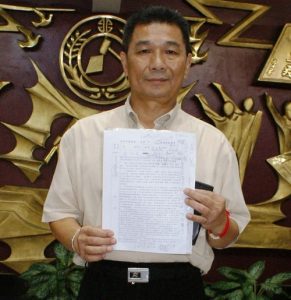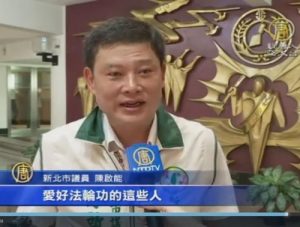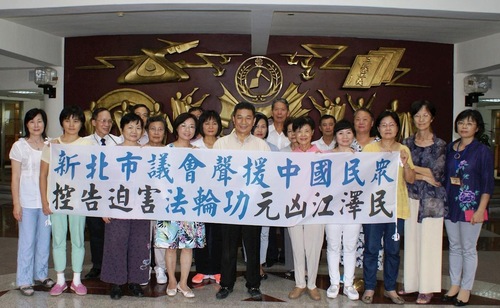The New Taipei City Council has unanimously passed a resolution “supporting lawsuits against Jiang Zemin and calling for an immediate end to the persecution of Falun Gong.”
On October 20, 2016, New Taipei became the 13th city in Taiwan to pass a resolution supporting the movement by hundreds of thousands of victims and supporters to prosecute former Chinese Communist Party (CCP) leader Jiang Zemin for launching the persecution of Falun Gong.
Sponsor: Resolution Represents Four Million Citizens
“The CCP’s 17-year-long persecution of Falun Gong and live organ harvesting cannot be tolerated,” said council member Cheng Chin-long, who sponsored the resolution. “Democratic governments, including New Taipei, Taichung and other cities, respect basic human rights. It is a universal value of Taiwan.”
He said that despite China’s rapid development, the country is way behind when it comes to human rights and freedom.
He stressed, “Freedom and human rights are universal values. The passage of the resolution represents the voice of four million New Taipei citizens. This calls on the Chinese government to respect human rights, especially for Falun Gong practitioners.”
Falun Gong practitioners are the largest group of prisoners of conscience in China and the main target of state-sanctioned forced organ harvesting.

Council member Hsu Chao-hsing said in an interview, “We stand in support of Falun Gong practitioners against the unfair treatment. I hope they keep up their fight for freedom, as it is the right thing to do.”

Council Member: Bring Jiang to Justice and Restore The Rights to Falun Gong
“Forced live organ harvesting is inhuman and against the basic rights of life,” said council member Lin Chiu-hui in an interview. “Freedom of belief is a part of life. Damaging it would bring condemnation around the world.”

Council member Chen Chi-neng said, “I call on the Chinese government to review Jiang’s crimes.”
He stressed, “Jiang must be held responsible for his crimes. Rights must be returned to Falun Gong practitioners and their name cleared.”

Background
Falun Gong teaches people to follow Truthfulness-Compassion-Forbearance, leading to improved health and moral standards. More than 100 million people have taken up the practice since it was introduced to the public in 1992 in Changchun, China.
Out of jealousy of Falun Gong’s vast popularity and fear of losing control, Jiang initiated the persecution of Falun Gong on July 20, 1999.
The persecution has led to the deaths of thousands of Falun Gong practitioners over the past 17 years. Many more have been tortured for their belief and even killed for their organs in the state-sanctioned harvesting of organs from living practitioners for profit. Jiang is directly responsible for the inception and continuation of this brutal persecution.
Now that Chinese law allows citizens to be plaintiffs in criminal cases, over 200,000 practitioners have filed criminal complaints against the former dictator. People from other countries, including politicians, are speaking out in support of the movement to file these lawsuits. More than 1.8 million people in the Asian-Pacific region have signed petitions to report Jiang’s crimes and to support the lawsuits.
(Clearwisdom)

